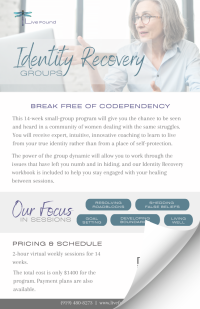What is Shame, Really?
Shame is that heavy, sinking feeling that echoes the lie, “You are not enough.” Unlike guilt, which says, “I did something bad,” shame takes it a step further and declares, “I AM bad.” And if you’ve ever felt crushed under that weight, you’re far from alone.
Shame is a powerful, isolating force. It convinces us to hide, terrified of being truly seen. It often takes root in childhood—maybe you were told you were “too much” or “not enough.” Maybe you learned to suppress your emotions, fearing that if people really knew you, they’d avoid you or leave.
But here’s the truth: Shame is not your identity. It’s not your final word. Today, we’re diving into how to break free from shame’s grip and reclaim your true worth.
How To Begin Healing From Shame
The first step is understanding that shame thrives in darkness. But here’s the thing — shame only has power when it’s kept hidden.
Healing from shame isn’t about ignoring or denying it. It’s about facing it with truth, compassion, and connection.
Acknowledge the Shame
Shame begins to lose its power the moment you name it and bring it into the light. Ask yourself: What is my shame telling me? Where did it originate? Rather than allowing it to define you, bring it into the light.
Replace Lies with Truth
Shame feeds on lies like, “You’re not lovable” or “You’re not worthy.” But what’s the real truth? Your worth isn’t something you earn or perfect. It’s already yours.
Speak truth over yourself. Psalm 139:14 tells you, “You are fearfully and wonderfully made.” That’s the truth you deserve to stand on.
Share with Safe People
Shame insists, “Don’t tell anyone.” But healing thrives in safe, genuine relationships. When you dare to be seen—flaws and all —and are still met with love, shame’s power weakens.
And if you feel alone, remember that Jesus is always near, ready to listen. Psalm 34:18 reassures us, “The Lord is close to the broken-hearted and saves those who are crushed in spirit.”
Embrace Your Vulnerability
In The Voice of the Heart: A Call to Full Living, Chip Dodd writes, “Shame speaks to our desire to have abundant life in the understanding of our limitations & to serve something greater than ourselves,” framing shame as an invitation to recognize our boundaries and embrace a deeper purpose. He teaches that all feelings —even shame — are invitations.
Shame isn’t there to destroy you; it’s pointing toward something deeper that needs healing. When you stop running from it and start listening, true healing begins.
You Are Not Your Shame
Shame may have been a loud voice in your life, but it doesn’t have to remain that way. You are worthy. You are enough. And as you bring your shame into the light, you’ll find the freedom you’ve been longing for.
So, let me ask you — what’s one small step you can take today to start bringing shame into the light?
You can also schedule a session with me at livefound.org. This is Dr. Christine, and I look forward to working with you.




